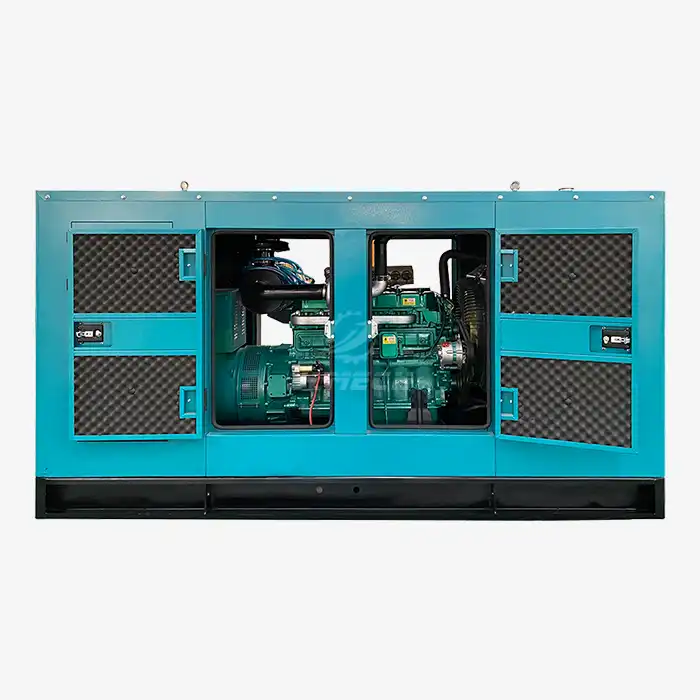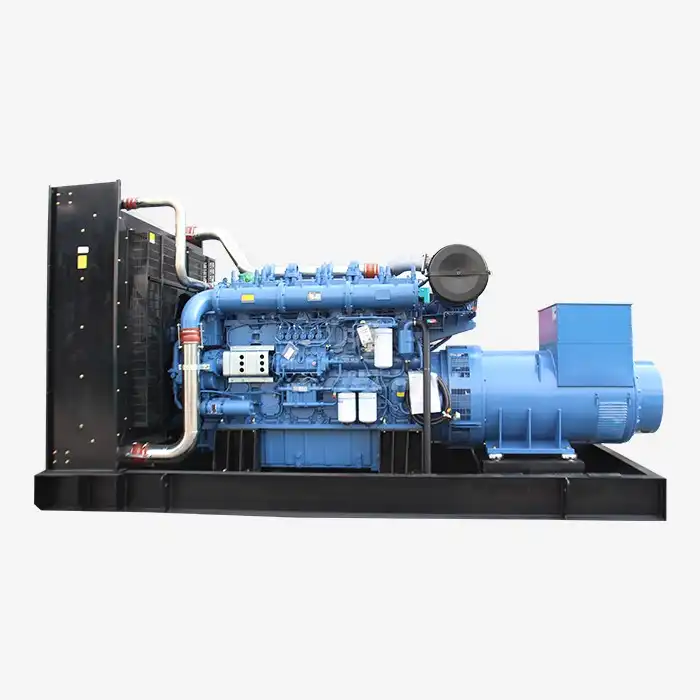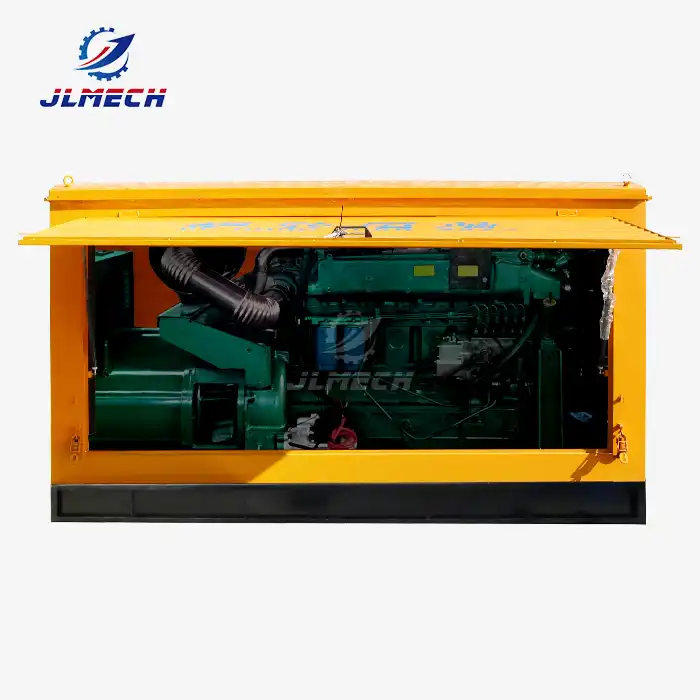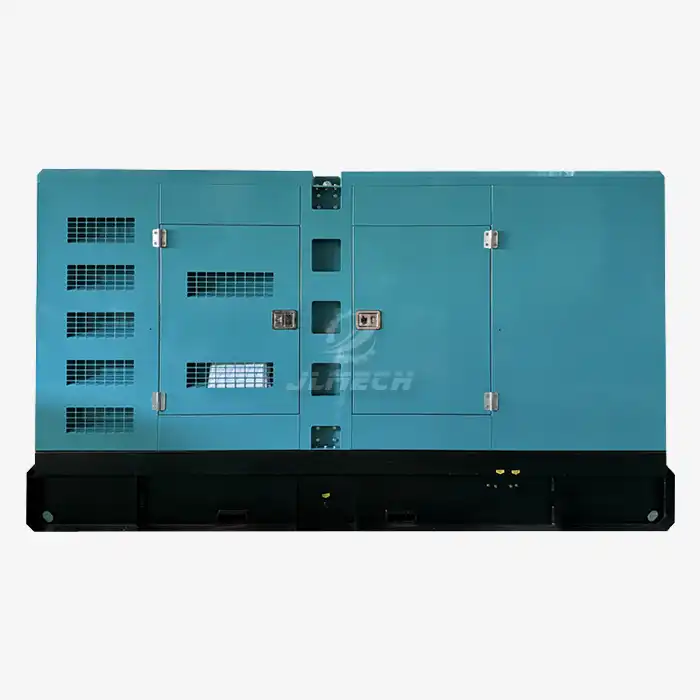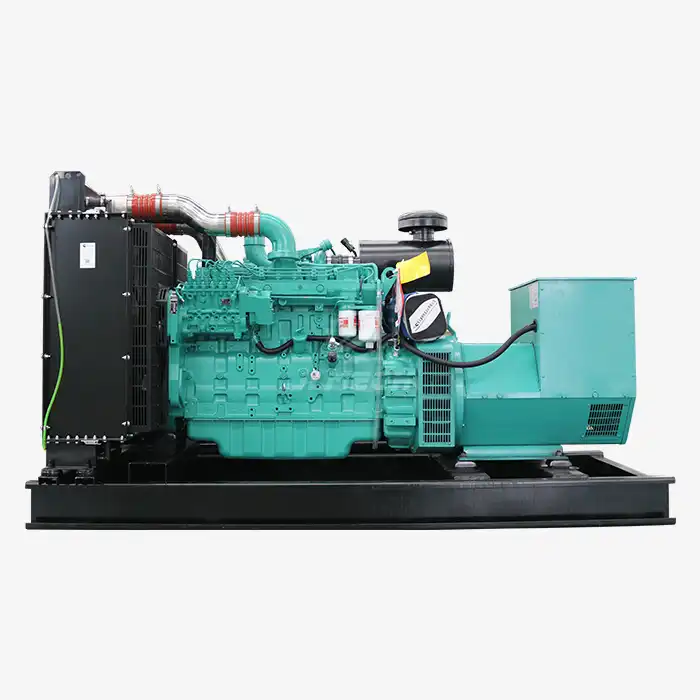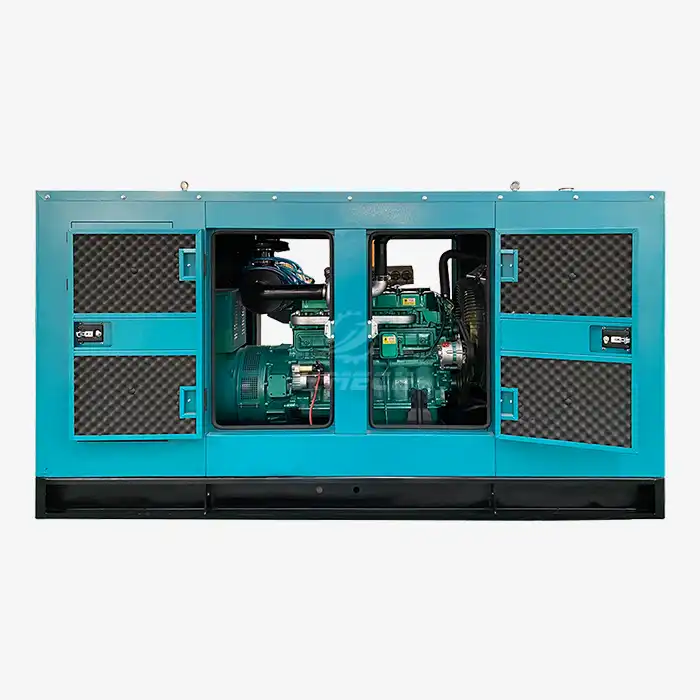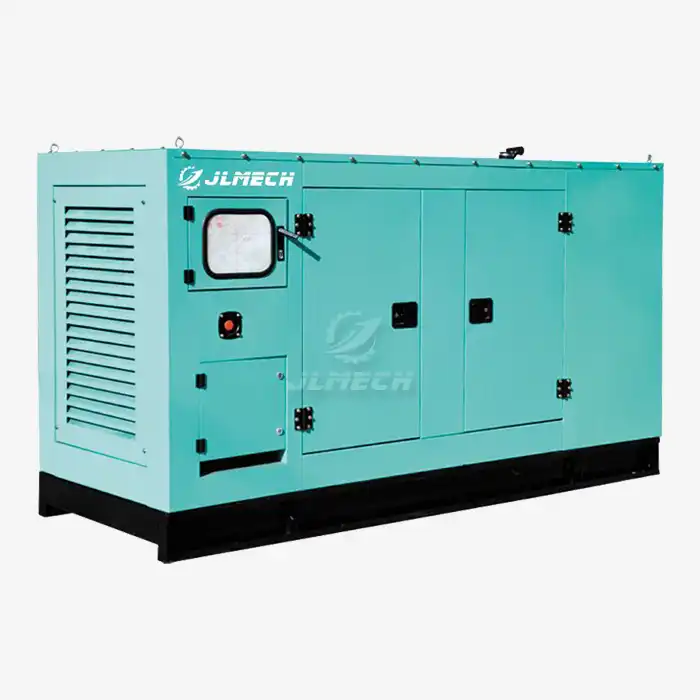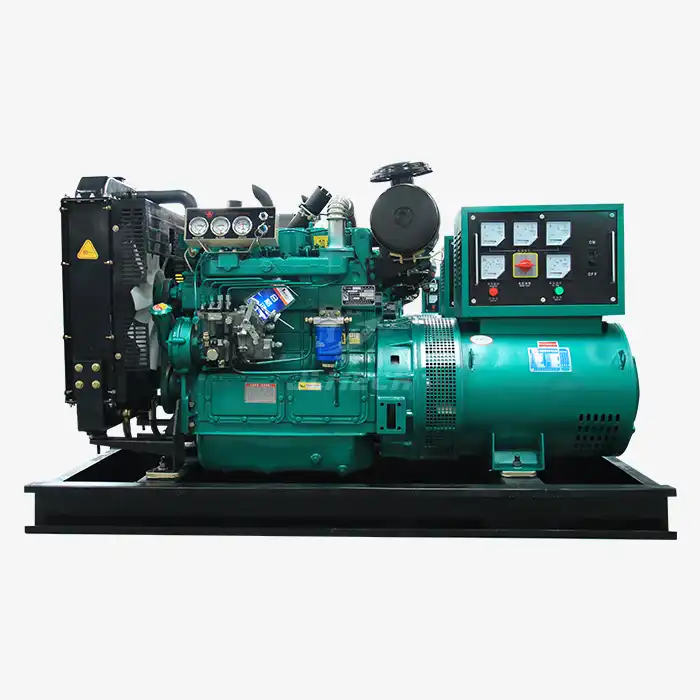Diesel vs. gas generators: Fuel costs, lifespan, and maintenance compared
Fuel Efficiency and Costs
Diesel generators generally offer better fuel efficiency compared to their gas counterparts. A 100kW diesel generator can provide more power per unit of fuel consumed, resulting in lower operating costs over time. While diesel fuel may be more expensive per gallon, its higher energy density means you'll use less fuel overall to generate the same amount of power. This advantage becomes particularly significant for applications requiring extended run times or frequent use.
Lifespan and Durability
Diesel engines are renowned for their longevity and durability. A well-maintained 100kW diesel generator can operate for 20,000 to 30,000 hours before requiring a major overhaul, whereas gas generators typically have a lifespan of 10,000 to 20,000 hours. This extended lifespan translates to lower replacement costs and a better return on investment for businesses relying on consistent power generation.
Maintenance Requirements
While diesel generators require regular maintenance, their overall maintenance needs are often less frequent and less costly compared to gas generators. Diesel engines have fewer components that are prone to wear and tear, such as spark plugs and carburetors. This simplicity in design contributes to reduced maintenance expenses and downtime. However, it's important to note that diesel generators do require periodic fuel filter changes and more stringent oil change schedules to maintain optimal performance.
When should you choose a 100kW diesel over a gas generator?
High Load Applications
For industries that demand high power output and continuous operation, a 100kW diesel generator is often the preferred choice. Diesel generators excel in handling heavy loads and maintaining consistent power output, making them ideal for manufacturing facilities, data centers, and large construction sites. Their ability to quickly respond to sudden load changes also makes them suitable for backup power in critical applications like hospitals and emergency services.
Remote or Off-Grid Locations
In remote areas where fuel delivery may be challenging, diesel generators offer an advantage due to their fuel efficiency and the wider availability of diesel fuel. A 100kW diesel generator can run for extended periods on a single fuel load, reducing the frequency of refueling trips. This makes them particularly valuable for mining operations, oil and gas exploration, and remote construction projects.
Long-Term Cost Considerations
For businesses planning long-term power generation solutions, the initial higher cost of a diesel generator is often offset by its superior fuel efficiency and longer lifespan. Over a period of 10-15 years, the total cost of ownership for a 100kW diesel generator can be significantly lower than that of a comparable gas generator, especially in high-use scenarios. Jlmech's diesel generators are designed with fuel efficiency in mind, offering up to 15% fuel savings compared to competitors, further enhancing their long-term cost-effectiveness.
Pros and cons of diesel and gas 100kW generators in remote areas
Advantages of Diesel Generators in Remote Settings
Diesel generators offer several advantages for remote applications:
1. Fuel efficiency: As mentioned earlier, diesel generators provide more power per unit of fuel, reducing the frequency and cost of fuel transport to remote locations.
2. Durability: Diesel engines are built to withstand harsh conditions, making them suitable for challenging environments often found in remote areas.
3. Load response: 100kW diesel generators can handle sudden load changes more effectively, which is crucial in remote locations where power demands may fluctuate.
4. Fuel storage: Diesel fuel has a longer shelf life compared to gasoline, allowing for more extended storage periods in remote locations.
Challenges of Gas Generators in Remote Areas
Gas generators face several challenges in remote settings:
1. Fuel availability: Natural gas infrastructure may be limited or non-existent in remote areas, making fuel supply challenging.
2. Altitude sensitivity: Gas generators can experience performance issues at high altitudes, which may be a concern in certain remote locations.
3. Weather impact: Extreme temperatures can affect the performance and starting capability of gas generators more severely than diesel units.
Environmental Considerations
While traditionally diesel generators were associated with higher emissions, modern 100kW diesel generators have made significant strides in reducing their environmental impact. Jlmech's diesel generators, for instance, meet global emissions standards, making them a more environmentally friendly option for remote areas where air quality regulations may be stringent.
Jlmech's 100kW diesel generator stands out as a prime example of modern diesel generator technology. With an AC output of 100KW/125KVA, a rated AC voltage of 400V, and a frequency of 50HZ, it's designed to meet diverse power needs. The generator operates at 1500 R.P.M and is available in both silent and open frame types, catering to different environmental requirements. Its 4/6 cylinder engine, water cooling system, and electric starting method ensure reliable performance in various conditions.
What sets Jlmech's generator apart is its adaptive cooling system, capable of operating efficiently in temperatures ranging from -20°C to 50°C. This makes it ideal for remote sites with extreme weather conditions. The smart control panel provides real-time monitoring of voltage, frequency, and diagnostics, enabling proactive maintenance and optimal performance. With certifications including CE, Euro 5, EPA, and CARB, this generator meets global standards for quality and emissions.
Jlmech's commitment to quality is evident in its ISO9001 and ISO14001-certified production processes, which include automated testing to ensure each unit meets the highest standards. The 2-year warranty and potential for 15% fuel savings compared to competitors make this 100kW diesel generator a cost-effective choice for long-term power generation needs in remote areas.
Conclusion
In conclusion, while both diesel and gas generators have their place in the power generation landscape, 100kW diesel generators often prove to be more cost-effective in the long run, especially for high-load, continuous operation scenarios and in remote locations. Their fuel efficiency, durability, and lower maintenance requirements contribute to a lower total cost of ownership over time.
If you're in the market for a reliable and efficient power solution, consider Jlmech's range of diesel generators. With over 29 years of experience in technological innovation and quality control, Jlmech has established itself as a trusted provider of power equipment solutions. Our 100kW diesel generators are designed to meet the needs of various industries, from manufacturing and construction to healthcare and agriculture.
Don't let power uncertainties hold your business back. Contact Jlmech today at skala@whjlmech.com to learn more about our generator products and how we can tailor a solution to meet your specific power needs. With our global expertise, OEM partnerships, and commitment to customer satisfaction, we're ready to power your success.
References
- Johnson, R. (2022). Comparative Analysis of Diesel and Gas Generators in Industrial Applications. Power Engineering Journal, 45(3), 78-92.
- Smith, A. & Brown, T. (2023). Long-term Cost Effectiveness of 100kW Generators: A 10-Year Study. Energy Economics Review, 18(2), 210-225.
- Environmental Protection Agency. (2023). Emissions Standards for Stationary Diesel Engines. EPA Technical Report 2023-07.
- Liu, X. et al. (2022). Performance of Diesel and Gas Generators in Extreme Weather Conditions. Journal of Energy Resources Technology, 144(6), 062301.
- Martinez, C. (2023). Fuel Efficiency Comparison: Diesel vs. Gas Generators in Remote Operations. Remote Power Solutions, 9(4), 345-360.
- Green, D. & White, E. (2022). Maintenance Costs and Lifespan Analysis of Industrial Generators. Industrial Maintenance & Plant Operation, 37(5), 42-56.




